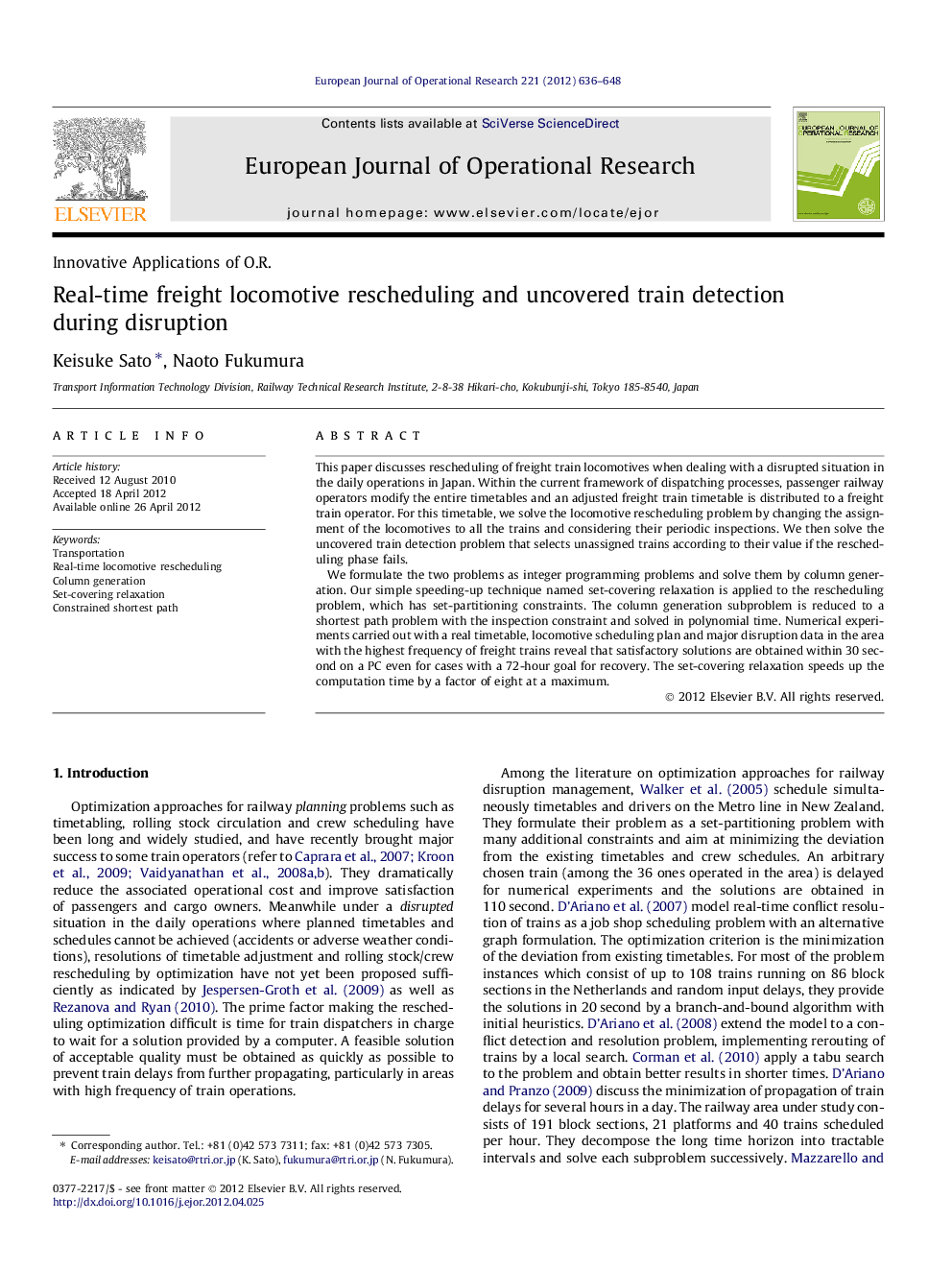| Article ID | Journal | Published Year | Pages | File Type |
|---|---|---|---|---|
| 480072 | European Journal of Operational Research | 2012 | 13 Pages |
This paper discusses rescheduling of freight train locomotives when dealing with a disrupted situation in the daily operations in Japan. Within the current framework of dispatching processes, passenger railway operators modify the entire timetables and an adjusted freight train timetable is distributed to a freight train operator. For this timetable, we solve the locomotive rescheduling problem by changing the assignment of the locomotives to all the trains and considering their periodic inspections. We then solve the uncovered train detection problem that selects unassigned trains according to their value if the rescheduling phase fails.We formulate the two problems as integer programming problems and solve them by column generation. Our simple speeding-up technique named set-covering relaxation is applied to the rescheduling problem, which has set-partitioning constraints. The column generation subproblem is reduced to a shortest path problem with the inspection constraint and solved in polynomial time. Numerical experiments carried out with a real timetable, locomotive scheduling plan and major disruption data in the area with the highest frequency of freight trains reveal that satisfactory solutions are obtained within 30 second on a PC even for cases with a 72-hour goal for recovery. The set-covering relaxation speeds up the computation time by a factor of eight at a maximum.
► We model locomotive rescheduling for real, large-scale disruptions as MIP. ► A set-covering relaxation to a set-partitioning constraint is proposed. ► A shortest path with a periodic inspection constraint is found in polynomial time. ► Almost optimal solutions are obtained in 30 s for Japanese instances.
